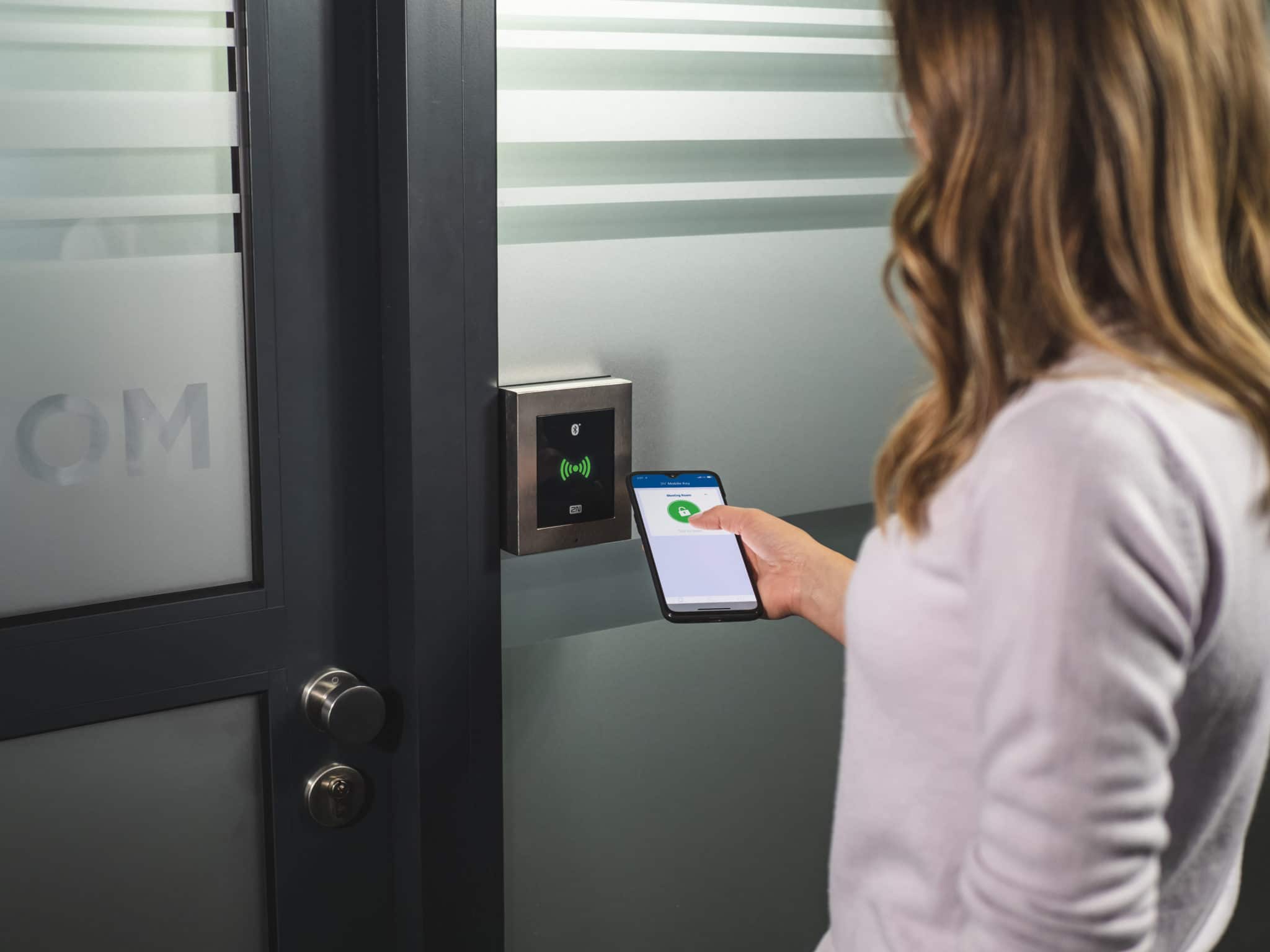
In our modern world, smartphones are ubiquitous and they’re quickly becoming an excellent choice for access control, reports 2N.
Smartphones are with us constantly. Not only do we use their technology to make routine phone calls and check emails, we’re using them to make payments. And, in addition to these day-to-day uses, they can fully replace access cards and are more convenient and secure to use.
According to IHS Markit, in 2018, growth rates for worldwide annual downloads of mobile credentials surpassed 150% and the market size grew to nearly 4.1 million downloads. By 2023, mobile credentials will grow from 1% of all credentials issued annually to 14% and will be introduced as a prominent alternative to physical credentials across the globe; IHS Markit projects that annual downloads of mobile credentials will reach over 120 million by 2023.
There are various drivers behind this phenomenon, but the most important one is convenience. For the user, it means being able to access their building using the smartphone without needing to carry additional cards or keys. Security administrators benefit from the remote issuing and revoking of mobile credentials and also from the high level of security that Bluetooth credentials offer.
Factors determining success or failure
Mobile phone access systems, most often based on Bluetooth Low Energy or NFC technology, have been on the market for some time and they are offered by more and more companies around the world. Not only does this mean we have had a lot of opportunity to see the benefits over traditional RFID cards, we also have a very good understanding of why some systems succeed while others fail.
Based on our experience, there are the three fundamental factors that determine the success of mobile projects: Speed – how long does the user have to wait after their authentication before the door actually opens?; Reliability – will the door open reliably at the first attempt or does the user have to try to open the door several times?; Security – how do you ensure that a nearby phone on the table does not give access to an unauthorised person?
WaveKey by 2N
Last year, 2N introduced WaveKey a patented technology for mobile phone access. WaveKey addresses the limitations that have, up to now, been associated with Bluetooth-based access control. However, this technology has many more advantages that make it the ideal mobile access solution to think about in projects.
With the ability to unlock a door in just 0.3 seconds, WaveKey offers speed and reliability so you won’t have problems using it in a busy office environment. The secret of this 2N technology lies in its unique pre-authentication system and communication with up to eight smartphones within the reader’s range simultaneously. Removing the need for the reader to hop from one mobile to the next eliminates delay and communication failure.
The right balance of convenience and security
Far quicker authentication means a frictionless passage throughout buildings as well as quick door opening, time after time. For maximum convenience, the user doesn’t even have to take their smartphone out of their pocket or bag. Just touch the 2N reader and enter. This is how one of the four WaveKey modes, called ‘Touch’ mode, works.
Another mode that an administrator can set is the ‘Tap’ in app mode. This increases security because the user has to unlock their phone to get into the app and open the door by pressing the virtual button; this mode is also great for longer range opening garage doors and parking barriers directly from the car.
The third option is ‘Card’ mode and it is more than a full-fledged replacement for NFC technology as it works for both Android and iOS devices over a very short distance. Finally, the last one is ‘Motion’ mode, a completely contactless way to open doors that takes the convenience of Touch mode a step further. The camera in the 2N intercom triggers the authentication process based on motion detection. If the approaching person has an authorised phone, they can open the door immediately.
“Apart from design and reliability, our main requirements for the new access control system included convenience of use for employees. In the past, we experienced problems with losing cards so we were looking for a solution which could eliminate this situation,” said Karel Stolejda, CEO and owner of Albion Cars s.r.o. – the largest dealership of Jaguar and Land Rover cars in the Czech Republic where the new technology is already operational.
“This is why we decided to use the 2N solution which let us transition to brand new WaveKey technology. The use of a mobile phone as a means of identification to enter individual buildings is truly a unique feature.”
Cybersecurity is, of course, an important aspect of the whole access control solution. WaveKey works via an encrypted communication channel between the user’s 2N Mobile Key app and the reader; by utilising AES-128 and RSA-1024 encryption keys it is impossible to eavesdrop and misuse mobile credentials.
Also very unique is the way that 2N handles the security challenge around totally contactless ‘proximity’ modes, eliminating the risk of unwanted door opening as a user walks by. Thanks to intelligent adaptive algorithms and RSSi signal trend analysis, the 2N readers know whether the user is approaching the reader, moving away from it or if the phone is lying on a table. So, you can be sure that a static phone or a user just passing by will never open the door to an unwelcome visitor.
For more details, visit: https://www.2n.com
This article was originally published in the March edition of Security Journal UK. To read your FREE digital edition, click here.
